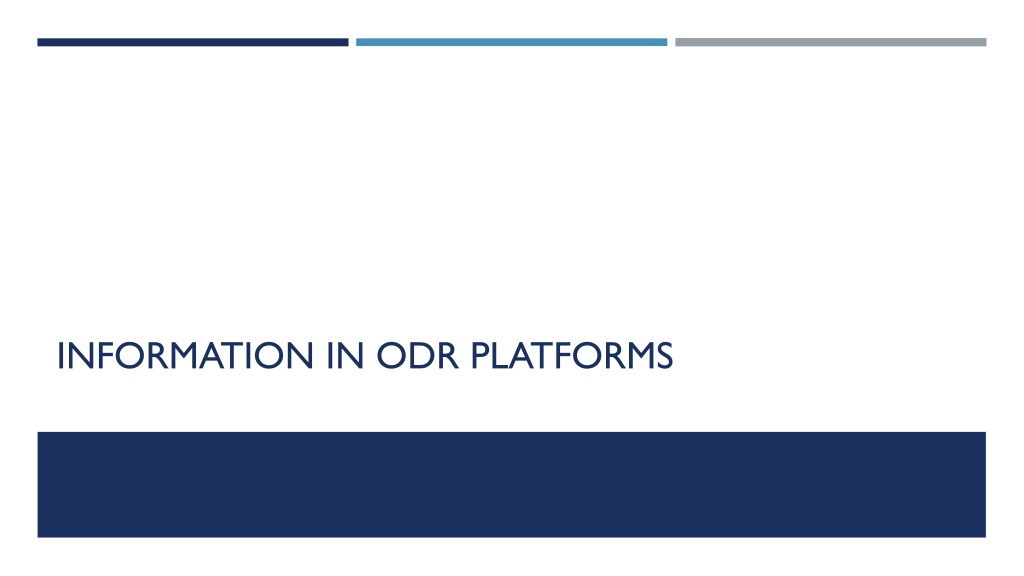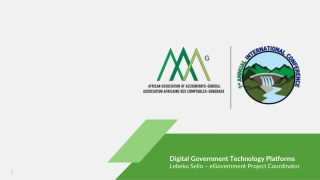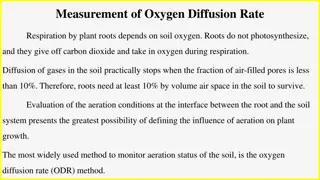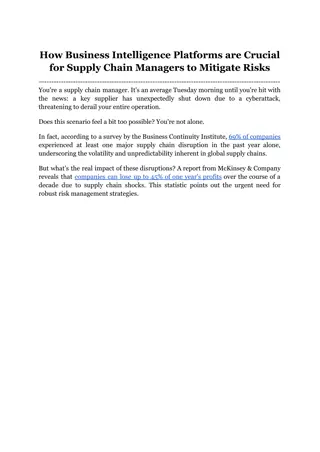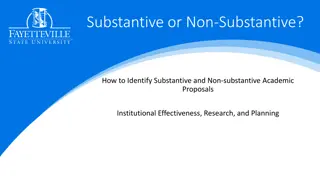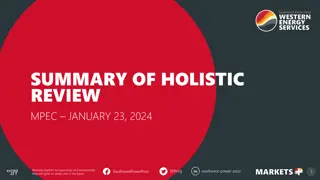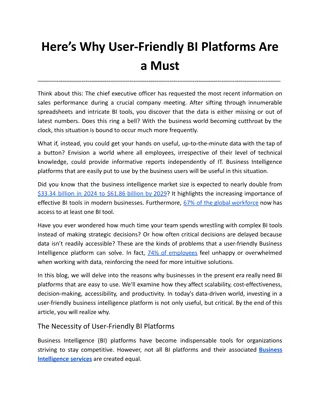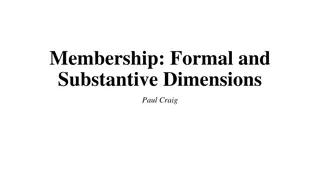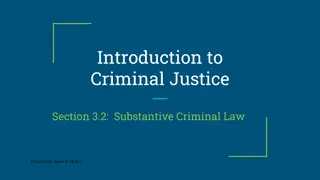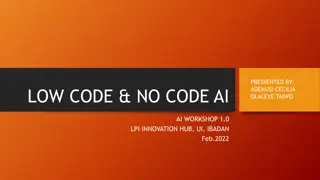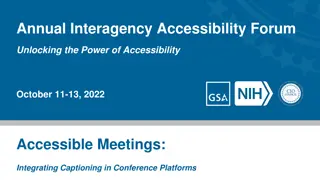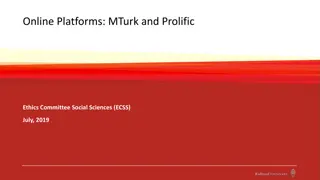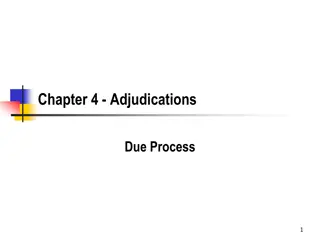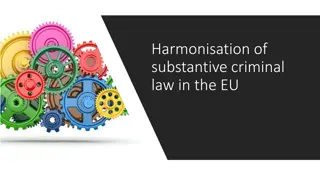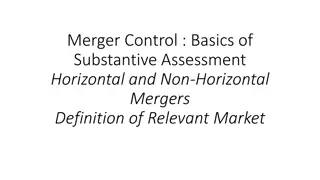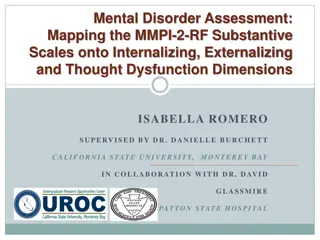Understanding Substantive Information in ODR Platforms
Explore two types of substantive information regarding small claims and debt claim cases, including definitions, sources, and relevant statutes in Texas. Gain insights into the legal processes and resources available for handling such cases effectively.
Download Presentation

Please find below an Image/Link to download the presentation.
The content on the website is provided AS IS for your information and personal use only. It may not be sold, licensed, or shared on other websites without obtaining consent from the author. Download presentation by click this link. If you encounter any issues during the download, it is possible that the publisher has removed the file from their server.
E N D
Presentation Transcript
TWO TYPES OF INFORMATION Substantive Process Oriented Statutes Rules of Civil Procedure Resources How To s
SUBSTANTIVE INFORMATION What is a .. Small claims case: A small claims case is a lawsuit brought for the recovery of money damages, civil penalties, personal property, or other relief allowed by law. The claim can be for no more than $10,000, excluding statutory interest and court costs but including attorney fees, if any. Source: Collin County Civil Suits, https://www.collincountytx.gov/justices_peace/Pages/civil.aspx Small claims case: When a person or company feels like someone else owes them money or has personal property that belongs to them, they can come to justice court and file a lawsuit called a small claims case. The person or company who files the case is called the plaintiff and the person or company they file the case against is called the defendant. Source: Self-Help Legal Information Packet- Filing a Small Claims Case; Texas Justice Court Training Center 2019
SUBSTANTIVE INFORMATION What is a .. Debt claim case: A debt claim case is a lawsuit brought to recover a debt by an assignee of a claim, a debt collector or collection agency, a financial institution, or a person or entity primarily engaged in the business of lending money at interest. The claim can be for no more than $10,000, excluding statutory interest and court costs but including attorney fees, if any. Source: Collin County Civil Suits, https://www.collincountytx.gov/justices_peace/Pages/civil.aspx
SUBSTANTIVE INFORMATION What is a .. A debt claim case is a special kind of lawsuit filed in a justice court to be heard by a justice of the peace to recover money that is owed. A debt claim case can be filed by: A bank or other financial institution, A collection agency or agent, A person or company whose business is lending money at interest, or A person or company who bought debt or a judgment from another person or company. Usually, the case is filed over a loan that hasn t been repaid or outstanding credit card debt. The person or company who files the case is called the plaintiff and the person they file the case against is called the defendant. Source: Self-Help Legal Information Packet-When a Debt Claim has Been Filed Against You; Texas Justice Court Training Center 2019
SUBSTANTIVE INFORMATION Statutes Texas Government Code, Chapter 27 (Justice Courts) Civil Practice and Remedies Code (Statute of Limitations) Texas Constitution & Statutes: https://statutes.capitol.texas.gov/
SUBSTANTIVE INFORMATION Resources: Guides/Information Small claims guide, Texas State Law Library Texas Law Help Articles/Toolkits Affirmative Defense Information and Examples: (excerpt) Discharge in Bankruptcy: A bankruptcy discharge is a court order that says the debtor is no longer responsible for certain kinds of debts. A defendant who has filed for bankruptcy and received a discharge for debts from the court can claim this affirmative defense if the plaintiff is now trying to sue him for one of those debts. Example:Theo got a credit card through West Bank. He made a lot of purchases and ran up a large balance on the card that he was unable to pay off. Theo filed for bankruptcy and the court entered a decree discharging Theo from his debts, including the West Bank credit card. Later, West Bank sues Theo for the balance owed on the credit card. Theo may be able to assert a discharge in bankruptcy affirmative defense. Statute of Limitations in Civil Lawsuits Self-Help Legal Information Packets
SMALL CLAIMS LEGAL INFORMATION PACKET Plaintiff If you come to a settlement agreement, the court can enter a judgment reflecting how much money is awarded. However, the court cannot put specific orders in the judgment, such as payment plans or deadlines. If you wish to have those in your settlement agreement, you would need to create a written contract, signed by both parties. If the defendant does not honor that written agreement, you could file a new lawsuit for breach of contract. Defendant The court is required to make the Rules of Civil Procedure available to you at no cost. Rules 500-507 are the rules that specifically apply to small claims cases. Often in disputes that end up in small claims court, both parties think the other side owes them money. For example, John hires Mary to paint his house. The agreement is that he will pay her $2,000 up front and $2,000 when she is done. She paints the house and wants her $2,000. But John thinks she has done awful work, and not only doesn t want to pay, he wants his original $2,000 back as well. If you feel the plaintiff owes you money, you can file what is called a counterclaim. In the counterclaim, you will be the plaintiff and the person who filed the original suit against you will be the defendant. Both the original claim and the counterclaim will be heard at the same time in court.
DEBT CLAIMS CASE SELF-HELP LEGAL INFORMATION PACKET NOTE The plaintiff in a debt claim case may be a business that you are not familiar with. Often, debts are sold to other companies for collection. So, for example, you had a Chase credit card, but then Chase sold that debt to Portfolio Recovery, Inc. Do not fail to respond just because you don t recognize the plaintiff! The petition in a debt claim case must provide information about the loan, credit card account, or other debt that the plaintiff is suing about, including who the original creditor was. The court is required to make the Rules of Civil Procedure available to you at no cost. Rule 508 is the rule that specifically applies to debt claim cases. If you come to a settlement agreement, the court can enter a judgment reflecting how much money is awarded. If you fail to follow the terms of your settlement agreement, the plaintiff could use the tools mentioned in this packet to enforce the judgment, or they could possibly file a new lawsuit for breach of contract.
SUBSTANTIVE INFORMATION Resources: Organizations/Websites Collin County Law Library: can call or email questions in addition to walking in Texas State Law Library Texas Law Help Texas Court Help
PROCESS-ORIENTED INFORMATION Texas Rules of Civil Procedure, Part V 502.2- Petition contents 502.7-Amending of clarifying pleadings 503.5- State policy regarding mediation Local Rules (District Court)
PROCESS-ORIENTED INFORMATION How-To s How to Sue in Justice Court: Texas Young Lawyers Association and State Bar of Texas The mediator is NOT a judge and cannot make any determination about your case or force you to settle. The mediator will simply assist both parties in negotiating the dispute. If you negotiate an agreement during mediation, the mediator will write down the terms of the agreement and ask both parties to sign. You will receive a copy of the agreement to keep for your records and a copy will be filed with the court. The agreement is essentially a written contract and is enforceable in a court of law. If the person you are suing does not follow the terms of the agreement, you can always return to court and ask the court to enforce the agreement. If you cannot come to a resolution during mediation, the court will hear your case as planned. (p. 12)
OUTSTANDING. Additional Information Topics/Areas Appeal information? Know your rights: Texas Appleseed Debt Collection Toolkit (linked on OCA SRL page) Mediation information? Non-justice sector resources
